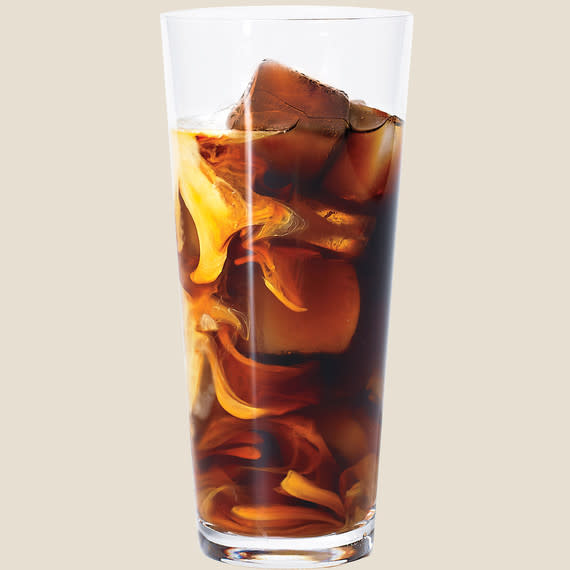The Lowdown: What's the Difference Between Iced Coffee and Cold Brew?

When it's hot outside, most people would agree that there's nothing better than a cool caffeinated sip to start the day. While iced coffee has long been a summertime essential, you'll find that cold brew has seen a surge in popularity in the last five years and is now on the menu in nearly every coffee shop. So, what's the difference between iced coffee and cold brew? Cold brew is often more expensive than iced coffee. Is it all hype or is there good reason for shelling out an extra dollar or two for cold brew rather than drinking an iced coffee? And what's the best way to make these drinks at home? To get all of the answers, we chatted with Allie Caran, director of education at Partners Coffee and Grady Laird, founder of Grady's Cold Brew Coffee.
Related: The Truth About Cold-Brew Coffee: Much Abrew About Nothing?
Why Do Iced Coffee and Cold Brew Taste Different?
Iced coffee typically tastes stronger, more acidic, and more bitter than cold brew. That's because iced coffee is brewed the same way hot coffee, so as the water and grounds heat up, they release oils which turn bitter. Laird explains that though iced coffee should be a thirst-quenching experience, acidity can get in the way of the refreshing taste; the acidity and bitterness is less noticeable when the same beans are brewed as hot coffee. By comparison, "cold brew is made by steeping coarsely ground coffee in cold or room temperature water for approximately 12-24 hours, resulting in a rich, syrupy concentrate," Caran notes. The flavor is slowly extracted from the grounds so you never taste that acidic punch. "The main thing that people describe when they drink cold brew is the smoothness, lower acidity, and they notice less bitterness than in iced or hot coffee," adds Laird.
Why Would Someone Choose Cold Brew Over Iced Coffee and Vice Versa?
Price may be a factor for choosing iced coffee over cold brew, as the latter is usually more expensive. Even if you make cold brew at home, a batch calls for significantly more grounds than iced coffee. However, the shelf life of cold brew may entice you to make it at home. "Cold brew takes longer to prepare, but has a longer shelf life, allowing you to enjoy upwards of a week. Iced coffee is best enjoyed directly after preparation, and rapidly deteriorates in flavor when stored," says Caran.
Which Has More Caffeine—Iced Coffee or Cold Brew?
Think you'll get an extra jolt by drinking cold brew coffee? Not so much. Laird says that lab studies do not indicate cold brew has more caffeine that iced coffee. Because cold brew is made into a concentrate, the strength can "easily [be] increased or decreased with water to control caffeine intake," says Caran. Cold brew concentrate normally gets diluted with a 1:1 ratio of water or milk, but you can add more or less depending on how strong of a sip you fancy.
Are the Same Beans Used for Iced Coffee and Cold Brew?
If you're going to make homemade iced coffee or cold brew, use your favorite beans. Remember that coffee tastes different when iced or when made as cold brew so the beans you enjoy for hot coffee may not be as satisfying as iced coffee or as cold brew. Caran prefers heavy-bodied Brazilian beans for cold brew and fruity, crisp Ethiopian beans for iced coffee. For convenience, Laird using his own bean bags to make a big batch of cold brew.
